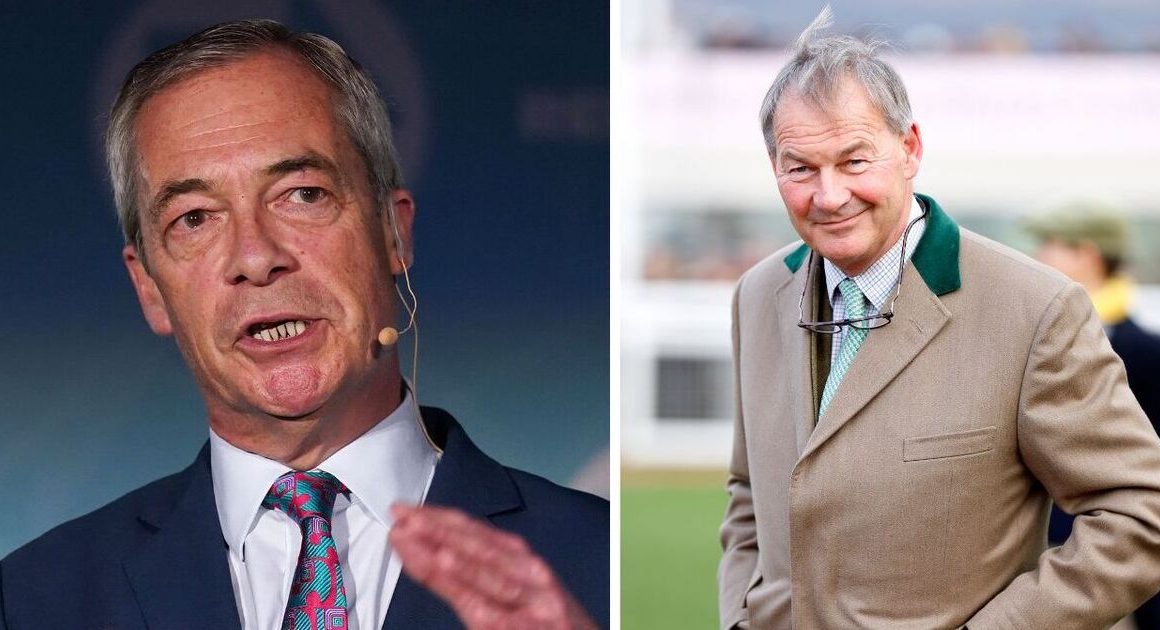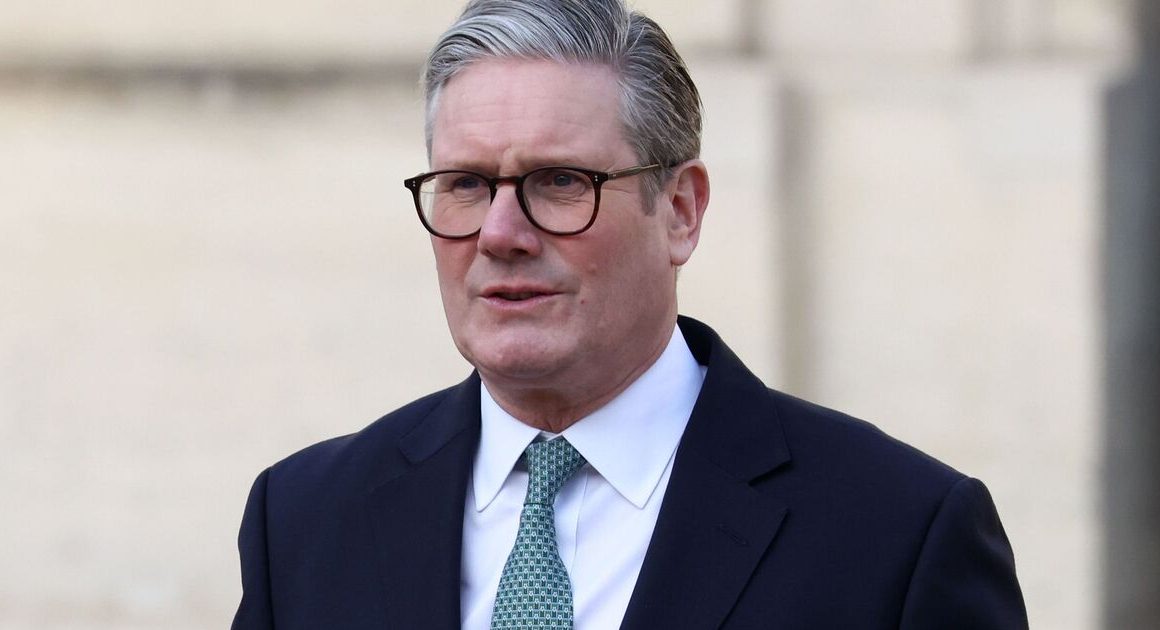The high-profile murder of a Punjabi rapper, repeated death threats against a Bollywood star and the killing of a Mumbai-based politician earlier this month — all are alleged to be the work of one of India’s most feared gangsters, Lawrence Bishnoi.
The latest addition to that list is the RCMP’s claim that the Bishnoi gang is targeting members of the pro-Khalistan movement on Canadian soil, allegedly at the behest of the Indian government.
The RCMP’s assistant commissioner Brigitte Gauvin name-dropped the Bishnoi group last Monday during a stunning news conference in which the Mounties outlined allegations that top Indian diplomats were engaged in criminal activity in Canada. Gauvin specified that investigators believe the gang is “connected to agents of the government of India.”
Prime Minister Justin Trudeau also made the explicit connection during his testimony at a commission investigating foreign interference last week.
He stated that diplomats collected information on Canadians who were “in disagreement” with the government of Indian Prime Minister Narendra Modi and then passed that information to “the highest levels” of the Indian government before it was directed to “criminal organizations like the Lawrence Bishnoi gang,” ending in “violence against Canadians on the ground.”
During testimony at the foreign interference inquiry last week, Prime Minister Justin Trudeau made reference to Indian gangster Lawrence Bishnoi.
Indian officials have rejected the accusations as “preposterous,” in turn accusing Canada of harbouring violent members of a group that calls for the creation of a separate Sikh homeland called Khalistan, and claiming the ruling Liberals are trying to win votes from the country’s large Sikh community.
Last Thursday, India’s foreign ministry pointed out that there are 26 pending extradition requests for gangsters, including members of the Bishnoi group, that India wants returned and prosecuted, which they say Canada has ignored.
“This is a contradiction in terms, which we don’t understand,” said Foreign Ministry spokesperson Randhir Jaiswal, calling it “really strange” that Canada is linking Indian government agents to the same gangsters India says it wants extradited.
Growing notoriety
The RCMP mention is yet another example of the expanding international influence of the 31-year-old Bishnoi, who despite having been in prison for the past nine years has only seen his notoriety grow.
Bishnoi’s group may have started their criminal path with small-time intimidation in student politics on a university campus in Punjab, but the gangster’s reach now extends across not only North America but “Europe and the Gulf states, and other areas with significant Punjabi diaspora communities,” said Delhi-based journalist Deepak Bhadana, who has spent the last few years investigating Bishnoi’s activities for the television station News9.
Indian investigators estimate Bishnoi controls a gang of 700 members across several Indian states, with Punjab police tracking some 2,500 known hideouts, used by the group’s hitmen, in that state alone.

Bishnoi himself has more than 30 criminal cases pending against him.
The general assumption is that the gang’s major operations, ranging from extortion to targeted assassinations, are orchestrated by Bishnoi from behind bars, using cell phones and encrypted messages.
Gurmeet Chauhan, a senior officer in Punjab’s anti-gangster task force, told BBC News that Bishnoi “runs his gang seamlessly from prison without needing to co-ordinate everything.”
“Unlike other gangsters confined to a region, he thinks big,” Chauhan added.
Not born into crime family
Given that Bishnoi’s operations and influence have only grown while he’s been imprisoned, some believe he enjoys some level of protection from the state or other powerful allies.
“In India, we are aware that these gangsters operate with political support,” said Jupinderjit Singh, a deputy editor with The Tribune newspaper in Chandigarh, a city in northern India. “Gangsters here cannot thrive without the support of politicians.”
Bishnoi’s rise to the top of India’s criminal ranks is an “aberration” because he was not born into a crime family, said Singh, who recently published the book Who Killed Moosewala? The Spiralling Story of Violence in Punjab.
Sidhu Moose Wala was a Punjabi rapper whose shooting death in May 2022 shocked India and its diaspora communities. Bishnoi has denied involvement in the killing, but he and his younger brother Anmol are the main suspects, along with Goldy Brar, one of Bishnoi’s closest associates, who Indian police believe helps run the gang from his base in Canada.

Bishnoi grew up in a relatively wealthy landowning family in Punjab, with a police officer father and a mother who gave him a British name, sent him to the local convent school when he was young and dreamed of her son becoming a lawyer.
Singh said Bishnoi became involved in violence and extortion while studying at university in Chandigarh, but truly grew into the gangster lifestyle after his first stint in jail.
“He was supposed to be kept in a separate [ward], but he was openly meeting and interacting with very hardened criminals,” said Singh, including terrorists and gangsters. “When he comes out, he’s a different person.”
Bishnoi has been incarcerated since 2015, moved from jail to jail in various parts of India, before landing at his current location, the Sabarmati prison in Gujarat state. Many experts say those moves put him into contact with prisoners steeped in India’s criminal underworld and enabled Bishnoi to very rapidly expand his network.
Underground rivalries
Recent events have stoked fears that Bishnoi’s gang has its sights on grabbing control of Mumbai’s criminal underworld, which could lead to more violence.

A member of the group claimed credit on social media after Baba Siddique, an influential 66-year old politician, was gunned down on the busy streets of central Mumbai on Oct. 12, sparking dark memories of the gangland killings that dominated the city in the 1990s.
Local media reports on the politician’s murder stated that Mumbai police had requested several times that Bishnoi be transferred from his Gujarat jail to one in Maharashtra state, where he could answer to new allegations — but that the applications for a move had been denied by India’s Home Affairs Ministry.
Last April, shots were fired outside the Mumbai home of Bollywood star Salman Khan. Bishnoi had publicly promised to kill Khan after accusing him of poaching two blackbuck antelopes, a revered species for the Hindu sect to which Bishnoi belongs. Bishnoi and his brother have again been named as key suspects in the case.
Singh said that like other high-profile Indian gangsters, Bishnoi is building up his personal mythology and stoking fears of his immense reach.
“Ever since Lawrence Bishnoi stepped into the world of crime, he has been saying only one thing: ‘I have to do something big’ every few months,” the investigative journalist said.
The aim is to “keep the fear of his name afloat” and increase his “brand value,” which goes up with each media report of a new alleged crime.
A ‘foolish’ statement
The statement by Canadian police does just that, according to Ajai Sahni, executive director of the Delhi-based think-tank the Institute for Conflict Management.
“I think the RCMP’s statement is most unfortunate, if not foolish,” Sahni said, calling it “nonsensical” that investigators would name the Bishnoi group without being certain they could establish the alleged link between the gangsters and the Indian government with hard evidence that would hold up in a court of law.

“The Indian government has built up the Khalistani threat,” Sahni told CBC News in an interview at his Delhi office. “And the Canadian government, by making statements of this nature, is building up the power of this criminal group, not only in India but [also] in Canada.”
Journalist Deepak Bhadana also questioned what Canadian police were hoping to accomplish by naming the Bishnoi gang.
“He’s been named [as linked to] a lot of things and that changes little,” Bhadana said. “I don’t think it helps anyone but Bishnoi.”
Known Bishnoi gang members, who are often keen to herald their exploits on social media, have not mentioned the RCMP’s statements in any posts.
Singh said Bishnoi uses the safety of jail, where he’s relatively protected from rival gang members, to his advantage. But the journalist, who has pored over interrogation transcripts and other court documents, believes Bishnoi is fully aware he won’t be safe behind bars for long given his rapidly expanding influence.
“In their hearts, gangsters like Bishnoi know that they live by the gun and they die by the gun.”











